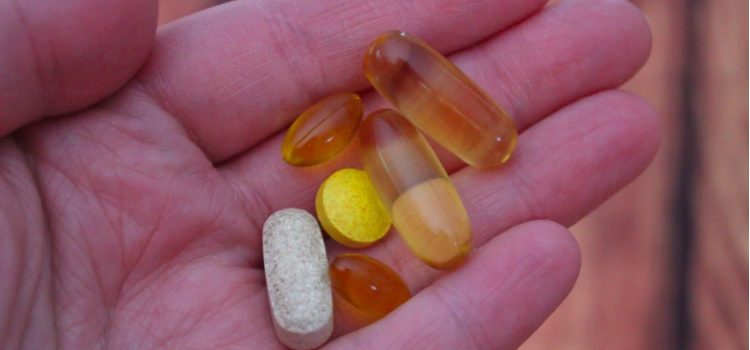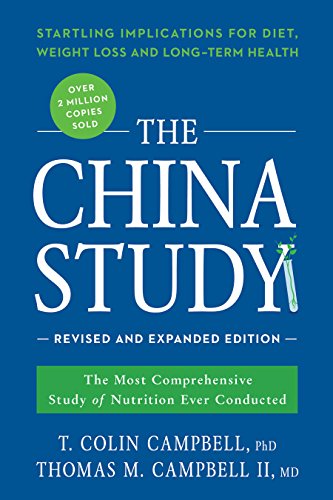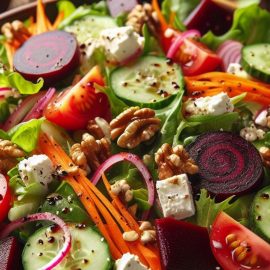

This article is an excerpt from the Shortform summary of "The China Study" by Colin Campbell. Shortform has the world's best summaries of books you should be reading.
Like this article? Sign up for a free trial here .
Do multivitamins work? Many researchers say no.
We’ll cover why it’s so hard to distill the benefits of fruits and vegetables in a pill and look at studies that show the failure of many vitamin supplements to work.
The Problem With Multivitamins
Most studies on the nutrients that go into multivitamins involve real, whole foods, not pills. This makes it hard to isolate the nutrients that are actually beneficial for your health.
For example, studies have shown that eating carotenoid-rich foods such as spinach, carrots, and sweet potato protects you from the free-radical damage that causes cataracts and macular degeneration, but supplements did not confer the same benefits. Why is it that carotenoids have purported benefits but we fail to see them when taking a carotenoid supplement? As we’ll see, the processes of various carotenoids working together are just too complex to put into a pill.
Is the same true of other nutrients? Do multivitamins work? To answer that question, we need to understand two principles.
Principle #1 Various nutrients work together to achieve health
No single nutrient is responsible, on its own, for good health. The way food chemicals function in the body and the way they interact with each other are too complex to ever fully understand. The sum of all these chemicals working together is greater than the actions of each individual chemical.
This is why the “whole foods” part of the whole foods, plant-based diet is important. How nutrients are packaged together in food matters more than the specific nutrients themselves. This brings us to Principle #2.
Principle #2 Avoid supplements—get your nutrients from food, not pills
Supplements like multivitamins are problematic for a variety of reasons. First of all, the whole concept of a supplement ignores Principle #1—it’s the whole food, not a particular nutrient, or even a collection of nutrients, that provides the most benefit.
Additionally, supplements are poorly regulated, so you don’t really know what you’re getting when you buy them. They may have unforeseen side effects and some can cause harm. For example, many researchers caution against taking beta-carotene supplements because they’ve been shown to increase lung cancer risk.
Another problem is that supplements encourage people to eat poorly and “compensate” by taking pills.
Exceptions to Principle #2
Vitamin B12: A healthy plant-based diet doesn’t contain B12, which is found only in animal products. Supplements of this vitamin have been shown to be effective in resolving deficiencies and there’s no evidence they cause health problems. So while not all vitamin supplements work, some are worth considering.
Vitamin D: While we can usually get the vitamin D we need easily from the sun, some people living in northern climates won’t see enough daylight to meet their needs. Studies on the benefits of vitamin D supplements are inconclusive. Sunlight is still the best way to get your vitamin D.
So, do multivitamins work? The studies are mixed, but many researchers say they don’t. If your diet doesn’t provide you with certain nutrients and it’s healthy otherwise, get those nutrients in supplement form. But it’s still best to get your vitamins from whole foods. Most multivitamins don’t work.
The Story of Lycopene
Although lycopene isn’t a multivitamin, the unfounded hype around lycopene supplements indicates why multivitamins don’t work.
The problem is that many doctors, researchers, and reporters focus on the health benefits of specific nutrients rather than the food as a whole. This is an approach opposite to the one implied by Principle #1, the idea that various nutrients work together to achieve health.
Because the whole food is more than the sum of its nutritional parts, changing your diet one nutrient at a time isn’t going to make you healthier. Taking a multivitamin probably won’t help much either. You need to look at the bigger picture, your dietary and lifestyle patterns as a whole, to understand how to be healthier.
Studies or companies that zero in on one particular nutrient lead to misleading information and confusion. You can’t isolate a chemical and then make sweeping assumptions about the food it’s in. Foods, the chemicals they contain and the way they work in the body, are too complex for that.
Let’s look at the dangers of focusing on one nutrient in isolation.
Lycopene Marketing
Often, scientists will use whole foods in their research and then supplement companies will use their findings to promote a specific nutrient. Lycopene is one example of many.
In the early 2000s, studies indicated that men who ate more tomatoes and tomato products had a lower risk of prostate cancer.
Rather than encouraging men to eat more tomatoes, people in marketing zeroed in on lycopene, the carotenoid thought to give tomatoes their health benefits.
The market for lycopene supplements boomed. But later research showed that high doses of lycopene were correlated to a higher risk of prostate cancer. Researchers started warning consumers against taking them.
Lycopene on its own probably isn’t what makes tomatoes healthy. It’s the way lycopene works in concert with the other chemicals in tomatoes that gives tomatoes their health benefits.
Do multivitamins work? Probably not, and because they’re unregulated, they can harm you. Get your vitamins from whole foods when possible.
———End of Preview———

Like what you just read? Read the rest of the world's best summary of "The China Study" at Shortform . Learn the book's critical concepts in 20 minutes or less .
Here's what you'll find in our full The China Study summary :
- Why animal proteins (meat, milk) might cause cancer, diabetes, and other diseases
- Why the medical institution is structured to hide the truth about disease and food
- The precise diet you'll need to eat to live longer and feel happier






